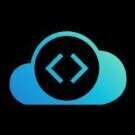Search the Community
Showing results for tags 'web development'.
-
Python consistently ranks at the top of programming language popularity surveys due to its diverse usage. One of the areas where it excels is in the development of robust web applications. It does this using frameworks such as Django, Flask, and FastAPI. In this blog, you will learn why Python can be a very good choice for web development. What is web development, and what does it entail? Web development refers to the process of designing, creating, and hosting websites or applications accessible over the Internet. Web development can generally be divided into three major areas: front-end development, back-end development, and hosting. Front-End Development Front-end development specializes in designing websites or applications from their user perspective and is therefore known as client-side development. Back-End Development Back-end development refers to the server-side logic and functionality that drives websites and web applications. It includes configuring servers, databases, and application logic that handles data processing and user authentication. Hosting and Deployment Hosting and deployment involve making a website or web app accessible to users on the internet. This involves selecting a hosting provider, configuring servers, deploying application code, as well as ensuring the reliability, security, and performance of said application or website. Python's Role in Web DevelopmentHere are the different roles that Python can play in web development: Backend Development Web Frameworks API Development Data Processing and Analysis Web ScrapingCheck out our Python Basics course to get started with Python. What Python frameworks can you use in web development?Below are the popular Python frameworks used in web development: Django Django is a high-level web framework that promotes rapid development and clean design. Following the "don't repeat yourself" (DRY) principle, it provides built-in features, such as ORM (Object-Relational Mapping), form handling, and authentication mechanisms. These features help developers focus on creating unique applications instead of performing routine development tasks such as redundancy reduction. Due to its extensive feature set and conventions, Django has a steep learning curve for beginners compared to micro-frameworks. Django is ideal for creating large-scale web apps with complex requirements. Applications like content management systems, e-commerce platforms, social networking sites, and enterprise applications can all be constructed using Django. Flask Flask is an innovative micro-framework designed for web development that takes an approachable yet minimalistic approach to web application creation. Though simple in appearance, Flask provides developers with all of the essential tools required to build web apps, such as routing, templating, and session management. Flask does not come equipped with built-in features for authentication, database ORM, or form validation as Django does. Developers will, therefore, have to rely on third-party extensions or libraries to implement these features. Flask is an ideal tool for building lightweight web apps and APIs of small to medium sizes that need flexible scaling capabilities, API prototyping, or prototype development. It provides great freedom when developing projects requiring flexibility and simplicity with no bounds on expansion potential. FastAPI FastAPI is a relatively new addition to the Python web framework landscape, known for its exceptional performance and modern features. Built on Starlette and Pydantic, it leverages Python's asynchronous capabilities to deliver high-performance APIs with automatic validation and documentation. Its intuitive API design and automatic interactive documentation make it a compelling choice for building scalable and efficient web services. FastAPI is a relatively new framework compared to Django and Flask, which means it may have a smaller community and ecosystem of extensions. It is well-suited for building high-performance APIs, microservices, and real-time applications that require fast response times and scalability. It's particularly useful for projects that prioritize performance, productivity, and automatic API documentation. Considerations when choosing a Python frameworkHere are a few considerations to keep in mind when selecting a Python framework for web development: Security: For optimal web security, consider frameworks with built-in protection features to combat common web vulnerabilities, such as SQL injection, cross-site scripting (XSS), and cross-site request forgery (CSRF). Look out for features like secure authentication, HTML escaping, and input validation. Performance: Evaluate the framework's scalability features, such as caching, database connection pooling, and asynchronous programming capabilities. Choose frameworks that can handle heavy traffic volumes while scaling horizontally with growing user bases. Cost: When selecting a framework, be aware of its licensing model; certain frameworks may have licensing fees or restrictions that could eat into project costs. For beginner projects, look for frameworks with open-source licenses that best meet the allocated budget requirements. Capability: Evaluate the features and capabilities of the framework in question to ensure it can meet the project requirements. Check for features such as authentication, database integration, form validation, and RESTful APIs. Integration: Explore the framework's ecosystem of extensions, libraries, and integrations to determine its compatibility with third-party tools and services. Look for frameworks with expansive ecosystems that support common integrations, such as database connectors, authentication providers, and payment gateways. Advantages of Using Python in Web DevelopmentBelow are the advantages you get from using Python for Web Development: Ease of Learning and Readability: Python's syntax is simple, clean, and easy to understand, making it convenient for beginners and experienced developers. Its easy readability encourages collaborative development and reduces the time needed to onboard new team members. Extensive Ecosystem of Libraries and Frameworks: Python boasts a vast ecosystem of libraries and frameworks explicitly tailored for web development tasks. Frameworks like Django, Flask, and FastAPI provide developers with the tools to build robust, scalable, and maintainable web applications efficiently. Rapid Development: Python's concise syntax and high-level abstractions allow developers to write their code quickly and focus on solving business problems. This results in faster development cycles, which leads to faster time-to-market for web applications, giving businesses a competitive edge. Versatility: Python is a versatile language used for various web development tasks, including backend development, frontend development (with frameworks like Django and Flask), scripting, automation, data analysis, and more. Its versatility makes it a valuable asset for developers working on diverse projects and domains. Scalability: Python offers an ideal environment for building web applications that can scale seamlessly as their traffic and data volumes grow. Frameworks like Django offer built-in features like caching, database optimization, and load balancing to help developers effortlessly expand their apps as their user base expands. Community and Support: Python boasts an active community of developers contributing to its continuous development and evolution. This community offers resources like documentation, tutorials, forums, and open-source libraries that make finding solutions to problems easier. Cross-Platform Compatibility: Python is a cross-platform programming language, meaning code runs without modification on multiple operating systems. This compatibility greatly simplifies deployment while giving developers access to an audience of potential web app users. Integration Capabilities: Python has impressive integration capabilities that enable it to seamlessly mesh with various technologies and platforms, making integration with third-party APIs, services, libraries, or third-party databases effortless for developers. From databases and web servers to frontend frameworks, its robust integration capabilities simplify development workflows significantly. If you'd like to build a strong foundation in Python syntax and core concepts, I recommend checking out our interactive Python Basics course. In it, you'll find dozens of bite-sized lessons that help cement your understanding of data types, functions, object-oriented programming, and more. Python Web Development Use CasesHere are some real-world examples of Python-powered websites and applications: Instagram: One of the world's largest social media platforms relies heavily on Python programming language for its backend infrastructure. It was initially developed using the Django framework. Pinterest: As with many popular social networking platforms, Pinterest utilizes Python for its backend services. It powers Pinterest's recommendation algorithms, content delivery systems, and user engagement features. Reddit: The popular social news aggregation and discussion platform is powered by Python. The site's backend infrastructure is built using the Pylons framework. YouTube: While YouTube's frontend is primarily built with JavaScript and other web technologies, its backend infrastructure relies on Python for tasks such as video processing, recommendation systems, content delivery, and analytics. Netflix: One of the leading streaming entertainment services uses Python extensively in their backend services and tools. They use it to implement content delivery, recommendation algorithms, data analysis, and open-source projects like Metaflow and Polynote. NASA: Python is widely utilized at NASA for scientific computing, data analysis, and mission-critical applications. Its user-friendliness and extensive library features make it an ideal solution for processing large volumes of scientific data efficiently and analyzing it effectively. NASA's Jet Propulsion Laboratory (JPL), as well as other research centers, utilize it for tasks like satellite image processing, climate modeling, and spacecraft control systems. These examples highlight the diverse use cases where Python is employed to build reliable and innovative web applications and services. Check out this article on How to Get Python Certification: The Step-By-Step Guide. ConclusionPython's suitability for web development is inarguable, thanks to its simplicity, flexibility, and robust ecosystem of frameworks and libraries. From creating simple websites or RESTful APIs to complex applications, it gives developers all they need to bring their ideas into reality efficiently and cost-effectively. Thanks to its rising popularity and widespread adoption, it continues to reshape web development while providing innovative yet scalable web solutions across industries and domains. More on Python: Create A Simple Python Web Application That Interacts With Your Kubernetes ClusterTop 7 Skills Required for DevOps Engineers (with Roadmap)Top 10 Programming LanguagesView the full article
-
A web development strategy called responsive web design (RWD) allows your website's layout to alter in compliance with the size of the viewer's screen.View the full article
-
The post 10 Best Udemy Web Development Courses in 2021 first appeared on Tecmint: Linux Howtos, Tutorials & Guides . DISCLOSURE: This post includes affiliate links, which means we receive a commission when you make a purchase. Every now and then, we check Udemy out for the most rated courses in different niches to The post 10 Best Udemy Web Development Courses in 2021 first appeared on Tecmint: Linux Howtos, Tutorials & Guides.View the full article
-
- linux
- web development
-
(and 1 more)
Tagged with:
-
Forum Statistics
73.8k
Total Topics71.7k
Total Posts
.png.6dd3056f38e93712a18d153891e8e0fc.png.1dbd1e5f05de09e66333e631e3342b83.png.933f4dc78ef5a5d2971934bd41ead8a1.png)


